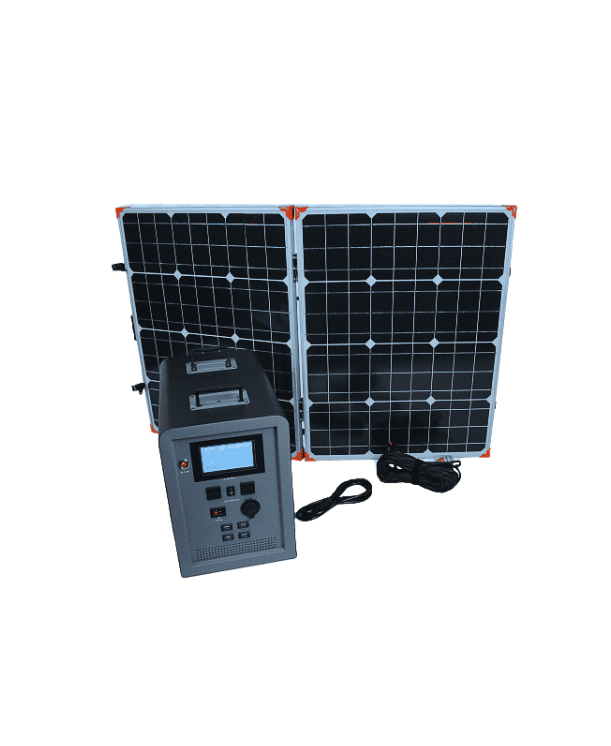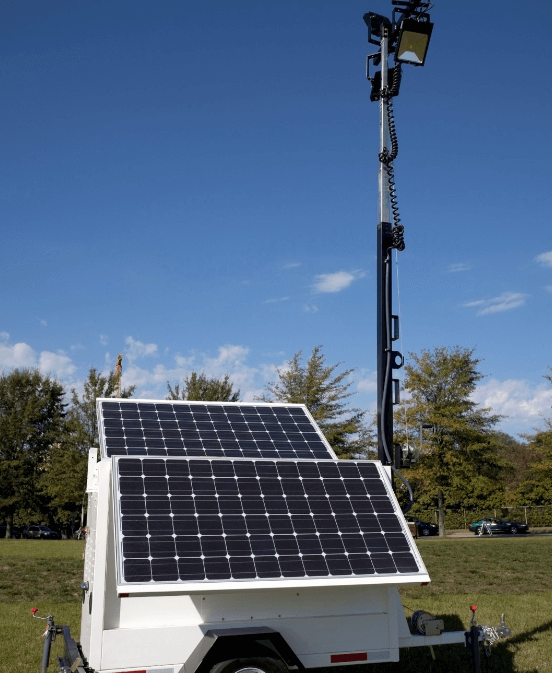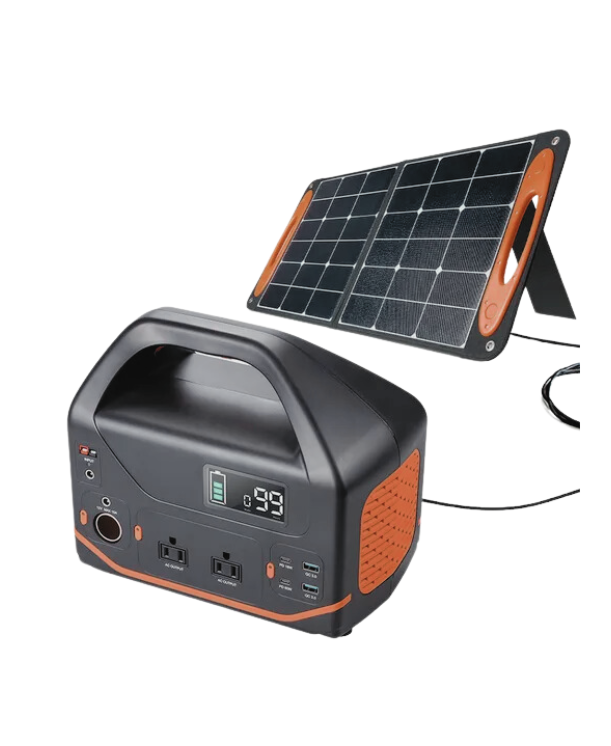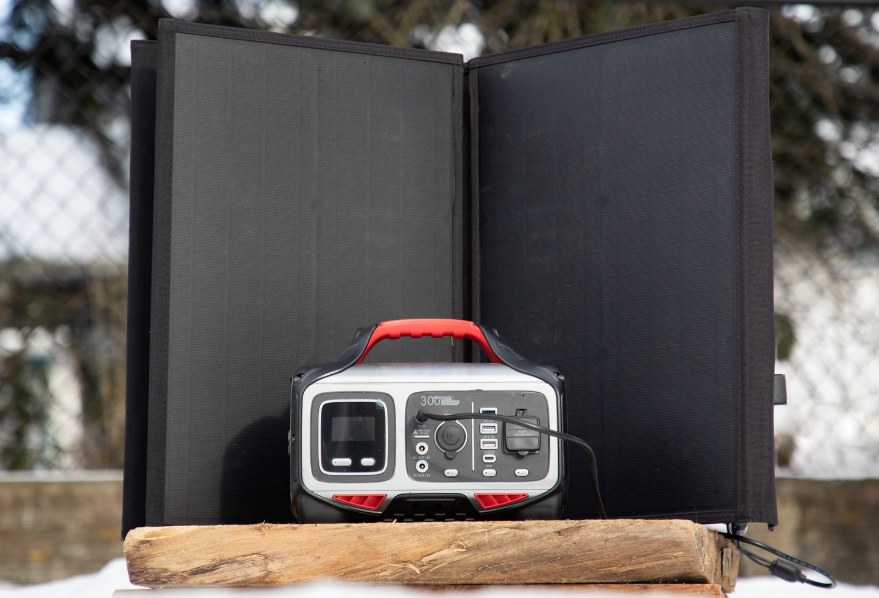You know, for home backup power, outdoor adventures or reducing reliance on the grid, solar generators offer an eco-friendly alternative to traditional fuel-based generators.
But one common question remains in your mind: How much can a solar generator cost? So today we will tell you the cost of solar generator and what you should consider.
Do you know what a solar generator is?

A solar generator is a device that converts energy from the sun into electrical energy. But it consists of three main components. like
1 : Solar Panels: They collect energy from the sun and convert it into direct current (DC) electricity.
2: Battery: Stores the electricity generated by the solar panel for later use.
3: Inverting electrical signals: Converts DC electricity into Alternating Current (AC), which is suitable for powering most household appliances and devices.
Basically, solar generators come in a variety of sizes and power capacities, making them suitable for a variety of uses, from small portable units for camping trips to large systems capable of powering an entire home during a power outage.
A few factors affect the cost of solar generators

Power output and battery capacity
The primary factors affecting the price of a solar generator are its power output, usually measured in watts (W), and battery capacity, measured in watt-hours (Wh) or kilowatt-hours (kWh). The more powerful a generator is, the greater its ability to run large appliances or multiple devices simultaneously.
Low power solar generators (up to 500Wh) often cost between $300 and $600. These units are suitable for small devices like smartphones, tablets and LED lights.
Mid-range models (500Wh to 2000Wh) cost about $600 to $2,500 and can power small household appliances like mini-refrigerators or fans.
High-capacity solar generators (2000Wh and above) cost between $2,500 and more than $5,000. These generators can power large appliances such as full-size refrigerators, air conditioners, and multiple devices over an extended period of time.
Quality of solar panels
The quality and type of solar panels used also affect the cost of a solar generator. There are two main types of panels:
Monocrystalline panels: These are more efficient and have a longer lifespan than other types, which makes them more expensive. Monocrystalline panels are ideal if you want to maximize energy production in a limited space.
Polycrystalline panels: These are less efficient but cheaper than monocrystalline panels. They are suitable for users who have more space for panel installation and are looking for a cost-effective solution
But a set of solar panels can add $100 to $1,000 or more to the total cost of a solar generator, depending on their size and efficiency.
For example, a 100W solar panel can cost around $100 to $300, while larger panels (300W and above) can cost up to $500 each.
Sometimes battery type and size can significantly affect the price. The two most common types are:
Lithium-ion battery:
They are lighter, more compact and have a longer lifespan than traditional batteries, making them ideal for portable solar generators. However, they are more expensive.
Lead-acid batteries:
They are cheap but heavy and have a short lifespan. They are suitable for fixed systems where portability is not a concern.
A lithium-ion battery with a capacity of 500Wh to 1000Wh can add $500 to $1,500 to the cost of the generator. By contrast, a lead-acid battery of the same capacity can add $300 to $800.
High-capacity lithium batteries for large systems can cost several thousand dollars, which contributes to the high cost of more powerful solar generators.
Another thing is that the voltage converter is an important component that converts the stored DC power into usable AC power.
The quality and size of the inverter affect both the performance and price of the generator.
A high-quality pure sine wave inverter ensures compatibility with sensitive electronics and provides better performance, but it also increases overall cost.
A small inverter (up to 300W) is enough to charge devices like phones and laptops, costing about $50 to $150.
Mid-range inverters (300W to 1000W) capable of running larger devices such as power tools or small appliances, range in price from $150 to $500.
High-power inverters (1000W and above) suitable for heavy-duty appliances can add $500 or more to the cost of a solar generator.
Another important factor is the brand and build quality, the brand of solar generator also greatly affects its price.
Well-known brands with a reputation for reliability and customer service, such as Goal Zero, BlueTie and Jackari, often come with a premium price tag. These brands usually offer better warranty, customer support and long-term durability.
On the other hand, lesser known brands may offer cheaper options but they may compromise on aspects such as build quality, battery life or customer service.
General price range for solar generators

Portable Solar Generator (200Wh to 500Wh): $200 to $600
Ideal for charging phones, tablets, small lights and other low-power devices.
Mid-size solar generators (500Wh to 2000Wh): $600 to $2,500
Suitable as a backup for small appliances, CPAP machines or household devices needed during short outages.
Large Solar Generator (2000Wh and up): $2,500 to $7,000+
Capable of powering large appliances such as refrigerators, TVs and power tools for extended periods of time.
Home Solar Generator System (Whole Home Backup): $5,000 to $20,000+
These systems include multiple solar panels, large-capacity batteries, and inverters designed to provide backup power for the entire home during outages.
Consider Before Buying Solar Generators
Upfront cost: The upfront cost of a solar generator is usually higher than gas-powered alternatives. However, long-term savings in fuel and maintenance can make them more economical over time.
Availability of sunlight: Solar generators depend on sunlight, which means their effectiveness may be limited in cloudy or rainy weather. However, a larger battery capacity can mitigate this problem by storing extra power on sunny days.
Energy Needs: It is essential to assess your energy needs before choosing a solar generator. A high-capacity model may be overkill for occasional outdoor use, while a small portable unit may not be enough for home backup in an emergency.
How to choose the right solar generator
First determine your power requirements, calculate the wattage requirements of the devices you plan to power.
Add up the wattage and choose a generator with enough capacity to handle those demands comfortably.
Consider portability If you need a generator for camping or outdoor activities, choose a lightweight, compact model. For home use, a larger unit with more power may be more appropriate.
Check for expandability, some solar generators allow you to add extra batteries or solar panels, making them more versatile and future-proof.
Read reviews and compare brands, find reliable brands with good customer feedback, and compare features and warranties offered.
Conclusion
So the cost of a solar generator can range from a few hundred dollars for a small portable unit to several thousand dollars for a high-powered system capable of powering an entire home.
If you understand the factors that affect costs and consider your specific energy needs, you can make a good decision that will provide long-term benefits and energy savings.
